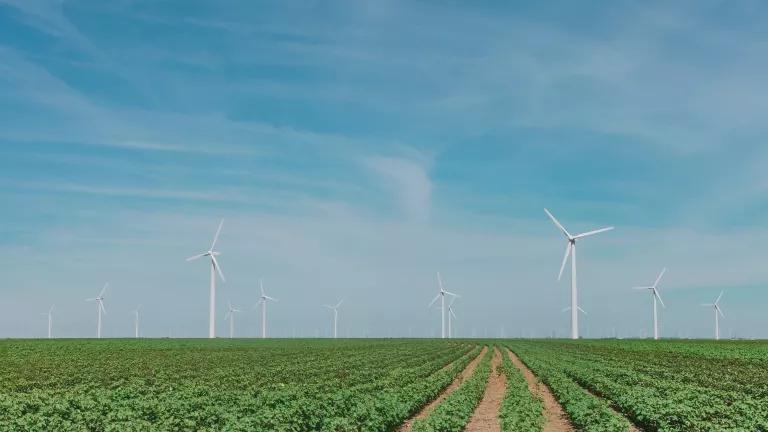A New Agenda for Climate Giants of the Western Hemisphere
Opportunities to catalyze Brazil’s low-carbon development.

A view of Rio de Janeiro
This blog was written in collaboration with Ryan Richards at the Center for American Progress
Brazil is known for its rich and important natural ecosystems, including, 60 percent of the Amazon rainforest. With the potential to absorb 5 percent of the earth’s carbon emissions and as home to one in ten of the Earth’s species, a healthy Amazon rainforest helps regulate the global climate and provides habitat for wild plants and animals. Along with the Amazon, Brazil is also home to the Cerrado and the Atlantic Forest, two areas that are also extremely important for biodiversity and global climate. Sadly, Brazil’s President Bolsonaro has steadily weakened the country’s environmental policies and enforcement in the most critical areas for climate, seemingly spurred on by the Trump Administration’s own assault on environmental protections. A Biden Administration can open the door for a new and urgent direction.
During his tenure, President Bolsonaro has actively dismantled environmental enforcement agencies and scaled back policies that protect the environment and Indigenous peoples in favor of unhindered agricultural, timber, and mining exploitation. In 2019, rampant fires throughout the Amazon drew worldwide attention to the implications of Bolsonaro’s environmental policies.
The Trump Administration has endorsed and emboldened Bolsonaro’s pursuit of this Amazon agenda, even though it poses existential threats to U.S. and international interests through the destruction of the “planet’s lungs,” and undermines Brazil’s past progress to promote conservation and sustainable development of its natural resources. The two leaders even recently signed a limited trade deal that would ease trade barriers, strengthen regulation and crack-down on corruption. As the election approached, Bolsonaro reiterated his support for Trump, pointing to Biden’s potential complication of his trade agenda and the former Vice President’s stated support for protecting (or in Bolsonaro’s words “interfering with”) the Amazon.

Land cleared for cattle grazing in the northeastern Amazonian state of Pará.
The challenge for President-elect Biden’s Administration will be to engage President Bolsonaro, who is notably hostile to outside pressure, to put the U.S. and Brazil on a new and constructive climate policy.
Luckily, there are several potentially fruitful paths forward, as the links between Brazil and the U.S. through trade are stronger than any specific administration. The Biden Administration should emphasize the importance of these connections and encourage Brazil to change direction from its recent decisions to undermine Indigenous rights and accelerate intensive development in the Amazon. The U.S. should work to support Brazil, in consultation with other Amazonian nations and Indigenous peoples, in creating a new vision for the Amazon rainforest. The top priorities in the coming years include:
- Working with Brazil to pursue the commitments made by both countries under the Paris Agreement. Once the US reenters the Paris Agreement, the Biden Administration can build a relationship and partnership of equals around a common agenda that encourages sustainable, climate-resilient development through enforcement of legal protections for forests and the rights of Indigenous communities.
- Supporting trade-related forest conservation and restoration efforts with Brazil and other Amazonian countries, including through agreements with subnational actors like state governors and Indigenous groups. Trade is one of the strongest links between the U.S. and Brazil—the U.S. is the second largest market for Brazilian exports, particularly beef and soybeans. U.S. trade-related actions to address the deforestation crisis, specifically leveraging environmental, social and governance (ESG) concerns through Brazil trade supply chains could push the policy needle in Brazil. Future discussions about the expansion of free trade should be conditioned on appropriate environmental- and human rights-related actions and safeguards. Biden’s Administration should also encourage state and local authorities to consider legislative actions similar to those of Los Angeles where the city council unanimously approved a motion to eliminate the purchase of any product derived from Amazon deforestation.
- Working with the private sector and other countries to align trade with environmental protection, human rights, and climate policy. The new administration is expected to incorporate climate policy into its discussions with other countries, including members of the European Union. European sponsors – primarily Norway and Germany – halted their long-standing support for the Amazon Fund in 2019 due to disagreements with the Bolsonaro administration. Separately, the EU and Mercosur have reached preliminary consensus on a free trade agreement that includes effective domestic implementation of the Paris Agreement. As it recommits to climate action in its discussions on the international stage, a new U.S. Administration should work with EU partners to ensure that member states’ environmental and human rights concerns are robustly addressed in the implementation of this free trade agreement.
Biden’s election sends a vital signal to Brazil: climate change cannot be ignored and anti-environment authoritarian leadership is not the path forward. It also highlights a positive path forward for the U.S.-Brazil relationship, one that includes U.S. support for Brazil to honor the economic, territorial, and cultural rights of the country’s Indigenous peoples, to invest in the sustainable economic development of the Amazon, and to advance natural climate solutions, including reducing the climate impacts of agriculture and effectively safeguarding the world’s most important natural carbon sink.



